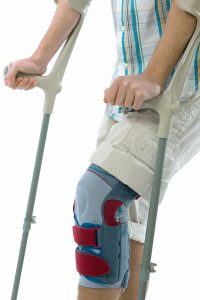Preventing falls in the elderly is crucial for maintaining their health and independence. Falls can lead to serious injuries, reduced mobility, and a decline in overall well-being. Here are some tips to help prevent falls in the elderly.
In the Home
Home safety should be the first action in any senior’s home. Remove tripping hazards such as loose rugs, clutter, and electrical cords. Ensure good lighting in all areas, especially stairways and hallways. Install handrails in bathrooms and along stairways. Consider a shower chair or bench for added stability.
Regular exercise can keep muscles and bones strong, and prevent frailty. Encourage activities that improve strength, balance, and flexibility. This can include walking, tai chi, and gentle exercises. Consult with a healthcare professional before starting any new exercise program.
Footwear is also a great preventative action. Ensure that the elderly person wears well-fitting, non-slip shoes with low heels. Avoid walking in socks or smooth-soled slippers on smooth surfaces. Keep those hospital socks with the grips, they’re great!

Consult Healthcare Professionals
Manage medications, and I can’t stress this one enough. Review medications regularly with healthcare providers to identify any that may cause dizziness or affect balance. Ensure that medications are taken as prescribed. Schedule regular check-ups to monitor overall health and address any emerging issues.
Regular eye check-ups are also important. Schedule regular eye exams to ensure that the elderly person has the correct prescription glasses. Keep eyeglasses clean and in good condition. Every time I visited my grandma I’d wash her glasses in the sink with regular dish soap. Removes smudges, lotion and makeup, and she appreciated it so much.
Use assistive devices as required. If needed, provide walking aids such as canes or walkers, and make sure they are properly adjusted. Consider using a raised toilet seat or grab bars in the bathroom.
"While safety is a priority, encouraging independence is also important. Striking a balance between safety measures and maintaining autonomy is crucial."
Encourage Independence
Make sure seniors are staying hydrated. Dehydration can contribute to dizziness and weakness. Encourage adequate fluid intake. This also addresses other health concerns as well.
Make sure family members and caregivers are aware of the potential risks and know how to assist the elderly person in a safe manner. Keep everyone up-to-date of any recent falls, medical evaluations, or pain management. Have a plan in place in case of a fall, including emergency contacts and procedures to follow.
Encourage independence in seniors. While safety is a priority, encouraging independence is also important. Striking a balance between safety measures and maintaining autonomy is crucial.
It's essential to tailor fall prevention strategies to the individual's specific needs and circumstances. Consulting with healthcare professionals, such as doctors and physical therapists, can provide personalized recommendations based on the person's health and mobility status.
If you’ve experienced caring for a senior, then you know how expensive long term care can be. Speak to a specialist today to find out if long term care insurance is a good option to protect your retirement dollars and family relationships. Our specialists will work with your budget, retirement goals, and any current health issues.


You must be logged in to post a comment.